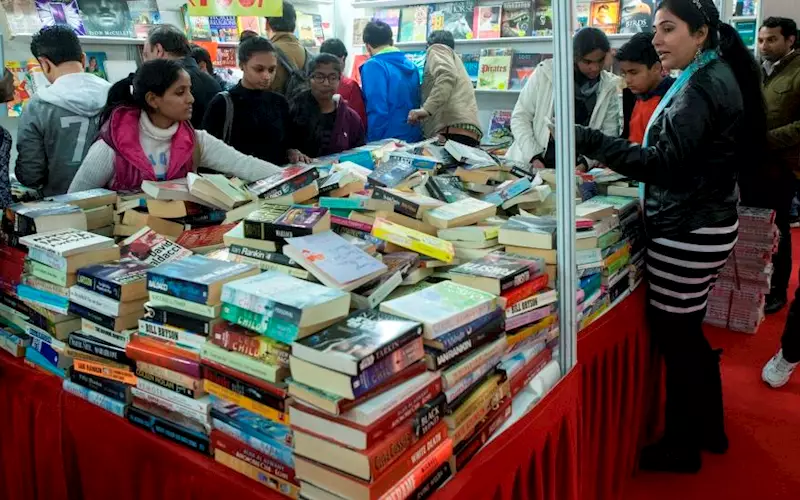ISBN International Agency writes to govt over delay of allotting numbers
Keeping with the government’s vision of a digital India, last year, the HRD ministry, in charge of the allotting International Standard Book Numbers (ISBN) for Indian publishers, digitalised the allotment process. Since then, publishers have complained that the process has slowed down publishing in India. The publishers have also raised fears of censorship, as the new online application system seeks details of the each book before issuing ISBNs. Publishers, for instance, have to provide the book
31 May 2017 | By Dibyajyoti Sarma
Now, the ministry is at the risk of its role of distributing ISBNs to publishers in India. According to a report published by The Indian Express, the ISBN International Agency sent a letter to minister of state for HRD Mahendra Nath Pandey on March 29 warning that it is “seriously considering” revoking the ministry’s appointment as the agency for issuing ISBNs in India as the number of complaints has “reached unacceptable levels”.
ISBN is a unique 13-digit code, usually found on the back cover of a book above the barcode and used by buyers to identify books. Although ISBN is not mandatory to publish a book, it has become an indispensable sales tool as bookstores, wholesalers and distributors keep track of books by these codes. Currently, there are over 150 registration agencies appointed by the UK-based ISBN International Agency for providing ISBNs to publishers in over 200 countries. In India, the Raja Rammohun Roy National Agency (RRMRNA), under the HRD Ministry, has been entrusted with this task.
According to several publishing houses, ISBNs are now issued in lots of 10, instead of 100, after a wait of three to four months. “Many of us have been surviving on our stock of ISBNs secured earlier. But we are running out. At this rate, the publishing industry in the country will face a serious crisis in two to three months,” said a publisher to the media.
Over 10 publishers are learnt to have already submitted a representation to the ministry on the problems being faced. “The (ISBN) Board is concerned at the very high level of email queries and complaints that the International ISBN Agency receives about the ISBN Agency of India from publishers who are based in India. The level of complaints has reached completely unacceptable levels — we are getting a number of complaints every day,” states the letter written by Stella Griffith, executive director, ISBN International Agency.
Griffith’s missive flags mainly three problems. First, the lack of response on email or phone from the ministry once an application for ISBNs has been filed. Second, the delay of three to four months for publishers to get ISBN numbers allotted as against the expected service time of two weeks. Third, the restrictions imposed on the number of ISBNs assigned in one go, from a set of 100 to a set of 10.
The letter also asks the government to clarify with regard to fears of censorship in the Indian publishing community. According to Griffith’s letter, publishers feel that the request to provide full details of each publication before seeking ISBN number amounts to censorship. “In fact, it is usually good practice to collect metadata about each book in order to make sure that the publication qualifies for ISBN (for example, that it is text-based, monographic and available to the public) and also in order that the details about it can be included in a “books in print” listing or database.
However, since I do not think that the India Agency produces a “books in print” listing (although that would be very welcome), and given the long delays in issuing ISBNs, it is very easy to see why publishers might think there is censorship/ restriction on freedom to publish. We hope that you can confirm to us that no such censorship rules or restrictions are in place,” the letter states.
Citing “little sign of improvement” in the ministry’s performance, Griffith wrote, “Board informs you that it is seriously considering revoking the appointment of your agency and awarding ISBN agency of India to another organisation.”
According to sources, the government has requested the ISBN International Agency to cite specific examples of delay, which can be taken up on priority. It has also defended the conservative approach in issuing ISBNs on the ground that only roughly half of the 78,000 unique codes issued to publishers till date have actually been used for publishing books. The government has also dismissed any suggestions of censorship. (Courtesy The Indian Express)














 See All
See All